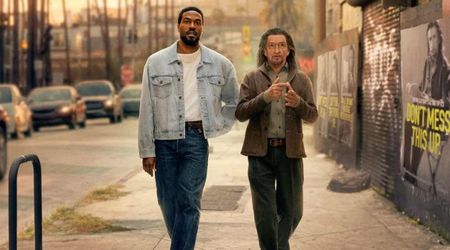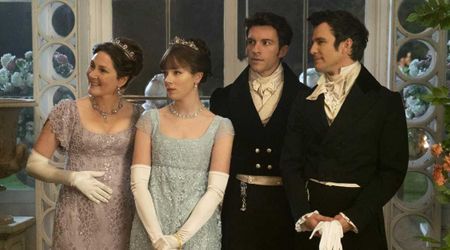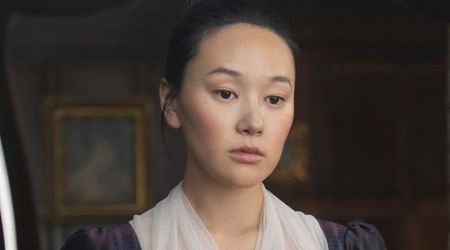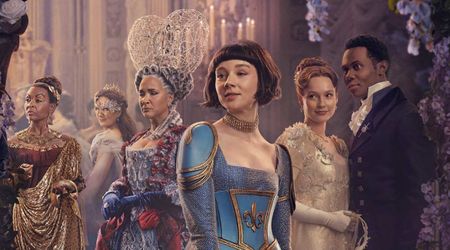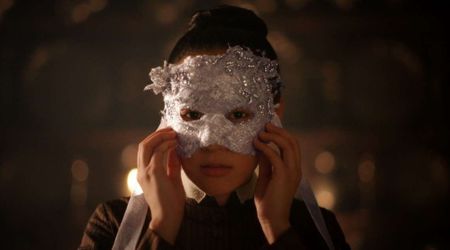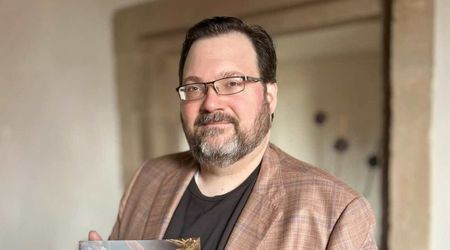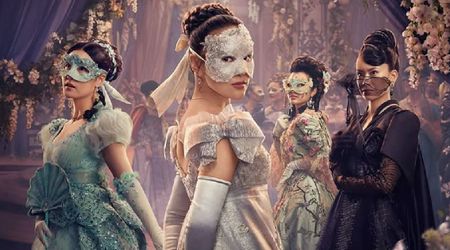'Mayans MC' star Vincent Vargas 'didn't think it was fair' that Adam Driver was bullied for serving in the war

Lockdown measures have meant that almost everyone is spending nearly all their time on Twitter. Those familiar with the social media platform would know that every new day during these difficult times sees a new celebrity being canceled. One of those celebrities was Adam Driver, for his supposed Islamophobic sentiments for enlisting.
On April 20, the hashtag #adamdriverisoverparty started trending on Twitter after a 2019 interview of the actor resurfaced. In the interview, Driver spoke about how he joined the Marines after 9/11 because he felt a deep desire for retribution against an invisible and unknown enemy.
"It wasn’t against Muslims," he said. "It was: We were attacked. I want to fight for my country against whoever that is."
What followed was a horde of Twitter users using Driver's comments to accuse him of being Islamophobic and launching the hashtag. "#AdamDriverIsOverParty forget that ugly Islamophobic troll stream my amy adams fancam," said one.
'Mayans M.C.' actor Vincent Vargas spoke to MEA WorldWide (MEAWW) on what he thought about Driver being subjected to the cancel culture. He said, "I think right now, people are completely polarized and completely divided on opinions on everything in the world. I believe they took Adam Driver's quotes on what he talked about, why he wanted to serve our country and turned it against him as if he [were] an Islamophobe."
He added, "I just didn't think it was fair to someone who [served] our country, someone who decided to join for whatever reasons that might be and then to turn around and try and damage his career because of unpopular opinions of other people. It's a small demographic of individuals that use social media to essentially bully someone on their own opinion."

Vargas also said that Driver's 2019 interview might have resurfaced as people are bored of being on quarantine and stuck indoors. He added that Driver is "a brilliant actor," and that he did not think "any kind of assumption of his character is going to ruin his career." Vargas said, "Whatever they took out of context, that's on them."
He said, "For it to kind of blow-up again was kind of weird. I was almost amazed by it and kind of blown away that someone who serves in America, who [makes] the kind of entertainment that we enjoy that is mostly made in America -- the land of opportunity that actors from other countries come to -- was [bashed]."
Vargas believes that it's "honorable and commendable" that Driver chose to serve in the war, whether "people believe in the [purpose of the] war or not." He said, "[Driver] was trying to serve a greater purpose than himself."
Vargas himself is a veteran. The actor enlisted for the military and served in both Iraq and Afghanistan between 2003 and 2007 and did three tours. At the time, Vargas enlisted partly for financial reasons. He had a child he needed to support, but also because he wanted to do his part to help. He said, "I wanted to try and do it the right way and try and do special operations."
The actor was part of both Operation Iraqi Freedom (the United States' invasion of Iraq from 2003 to 2011) and Operation Enduring Freedom (what the Global War on Terrorism was called by the United States government).
Vargas was sent to learn Pashtu for several months so he could communicate with the Afghani population in the hills. He said he would check on them to see how things were going as well as to establish that "we're here looking for terrorist fighters."
Vargas said there was an interesting dynamic between the soldiers and the civilians of those countries. He told MEAWW, "Are we there for the right reasons? That's a question to answer, but I'm here to do [the] job that has been asked of me by the military."
On being asked his opinions on the civilian casualties during the United States' operations in Iraq and Afghanistan, Vargas said, "I think we all know and [have] seen that there are civilian casualties in war all the time and it's a super unfortunate thing to happen."
He added, "It's obviously not something I condone or support but I also know that there's this crazy thing that happens in the fog of war and it's unfortunate. It's unfortunate that a lot of terrorist acts happened in our country and some civilians, innocent people, and bystanders get hurt in those as well. When you have a country at war, those things are to be expected and it's not a good thing. It's not something to be proud of, but it is something that we have to acknowledge exists."

Vargas plays the role of Gilberto "Gilly" Lopez on FX's 'Mayans M.C.'. Crucially, he also serves as a technical advisor on the show. Vargas tells us that it is just him and Tyler Grey (of 'SEAL Team') who are veterans who served in active combat duty who work as actors on mainstream television today.
Vargas said, "I believe it's kind of my place to make sure that veterans are represented in the right light and not to be bashed on for serving our country. Think about Hollywood. In the 50s and 60s, it was [run] by veterans who served in Vietnam and before that in World War 2."
As the technical advisor, Vargas helps make sure that everything done on the show regarding law enforcement, military, and border patrol are authentic. When the writers want to include material on those aspects, Vargas, makes sure that it is something that is correct and "valid toward the truth."
While it may seem that veteran representation in Hollywood is aplenty, veterans often lament that their on-screen counterparts are often portrayed in extremes. Veteran Chris Marvin told the New York Times that veterans were being stereotyped by what he believes has become the dominant image on television and in Hollywood today: the “broken hero,” as he puts it, “who once did incredible things but is now forever damaged and in need of help.”
“The truth is, 99 percent of us are neither heroic nor broken,” Marvin said. “We are people — people the public has invested in who have a lot of potential. And it’s time to get over the pity party.”
Marvin believed that the portrayals may color the public’s perceptions, causing people to think that veterans are more likely to be unemployed and to commit suicide than their civilian peers, which he insisted is not true.

